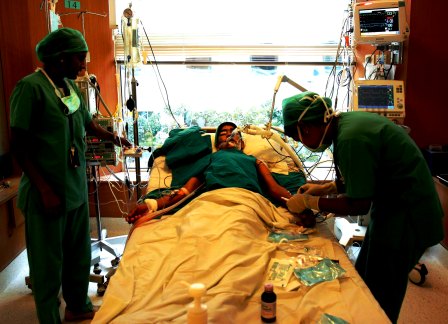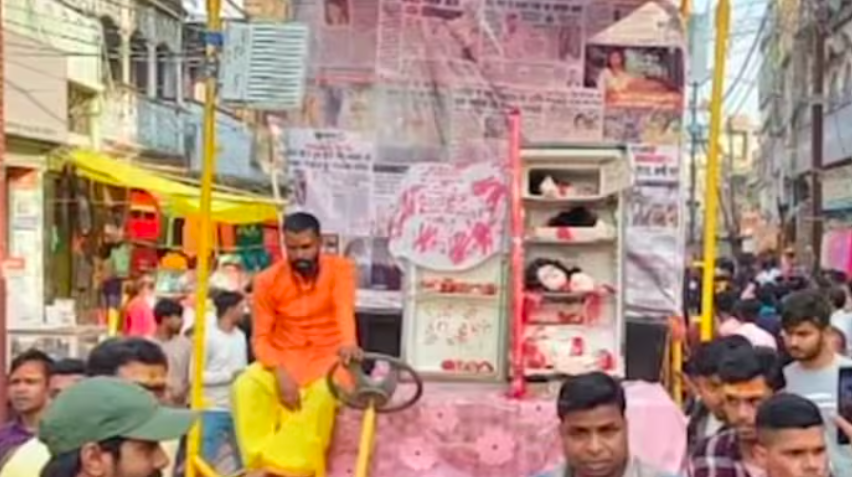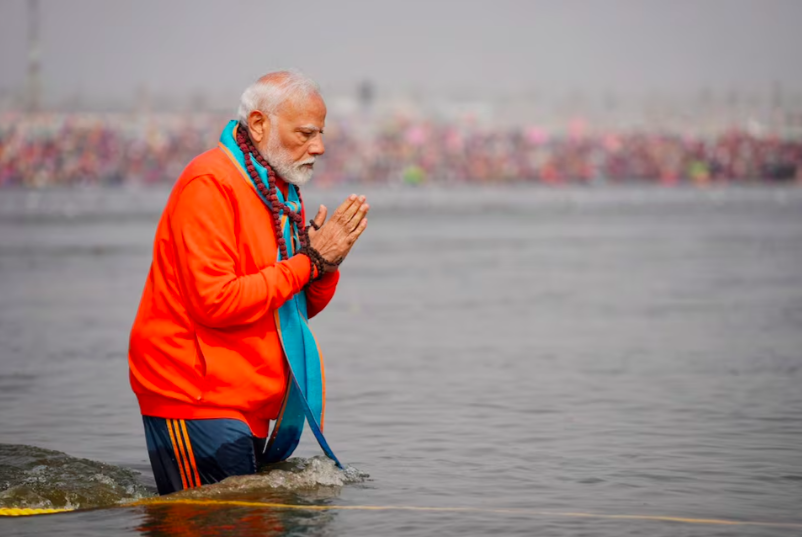BeyondHeadlines News Desk
Rural India deserves better as many residents can now afford better facilities…
There is a huge gap between demand and supply in rural healthcare in India. Although at present rural healthcare needs are met limited government facilities and private nursing homes, there has been no further enhancement of health care infrastructure in the rural areas. People by and large depend on quacks. The quality of infrastructure is usually poor and people end up having to go to nearby large cities if they need high-quality care.
Rural India deserves better, since the ability to pay has gone up over the last few years, driven by growth in income and penetration of government healthcare programmes like the Rashtriya Swasthya Bima Yojana (RSBY). Increasing demand, combined with the failure of existing infrastructure to scale, has resulted in rural healthcare being a large under-served market.
Absence of a viable business model prevents conversion of the huge rural expenditure on health into an economic activity that generates incomes and serves the poor. It is this gap that entrepreneurs such as Sabahat Azim are looking to plug.
He founded Glocal Hospitals with M Damodaran, the former chairman of market regulator Sebi, to take quality healthcare deep into rural areas through a large network of hospitals. Sequoia Capital invested in Glocal early last year and we have learnt the opportunities and challenges in healthcare delivery in rural areas.
Many times the talk of rural healthcare centers around “affordability”. Rural India is in fact not looking for “affordable” healthcare; it is looking for “high-quality” healthcare provided in a cost efficient manner.
Whether they live in urban or rural areas, people value health and are willing to spend within their stretch budgets to get the best healthcare service possible. This was our first significant learning at Glocal: to succeed in rural India, one needs to provide high-quality healthcare that is as good as what is available in urban India.
The real challenge of rural healthcare is in being able to provide high-quality care at a price point that provides maximum access to the rural population. That is, a price-point that can work towards expanding the market opportunity. This is critical for the model to be financially self-sustaining. At Glocal, we believe this is possible but not unless there is a radical change in how you design the healthcare delivery model. Taking the urban model and cutting it down to suit rural areas is not the right approach.
The Glocal team has followed three critical design principles that we believe are essential ingredients to creating a scalable and sustainable healthcare model: Glocal decided to focus on a zero based approach to design and costing. Glocal started designing its delivery model with a clean sheet of paper. We studied the common disease types across the country and tried to design a solution that catered to more than 90% of the disease occurrences.
Our focus was on reducing capital expenditure per bed by focusing on a smaller subset of disease types and providing high clinical excellence in those versus servicing all disease types.
Our two hospitals today have been constructed for under `8 lakhs per bed, including land, building, equipment and doctor residences.
Instead of being a doctor-driven model, Glocal aims to be a protocol-driven model facilitated by doctors. While good doctors are the core of any healthcare service, protocols allow for ensuring good quality care that is independent of the skills of the doctor and reduces errors.
Glocal’s model uses technology extensively to ensure operations can be lean across both the clinical and administrative aspects of healthcare delivery.
This improves both accuracy and efficiency of healthcare services at their hospitals. Technology is also being used to access high quality specialists who may not be physically located at the hospitals.
Most private sector health businesses have to learn how to create long-term viable models; they are still stuck with cost-plus models which increase patient expenditure without commensurate benefit.
From a category perspective, all of us should fervently hope that the Glocal team succeeds.
Glocal’s success will hopefully inspire other entrepreneurs to step in; the eco-system clearly needs more such sustainable and long term models.










